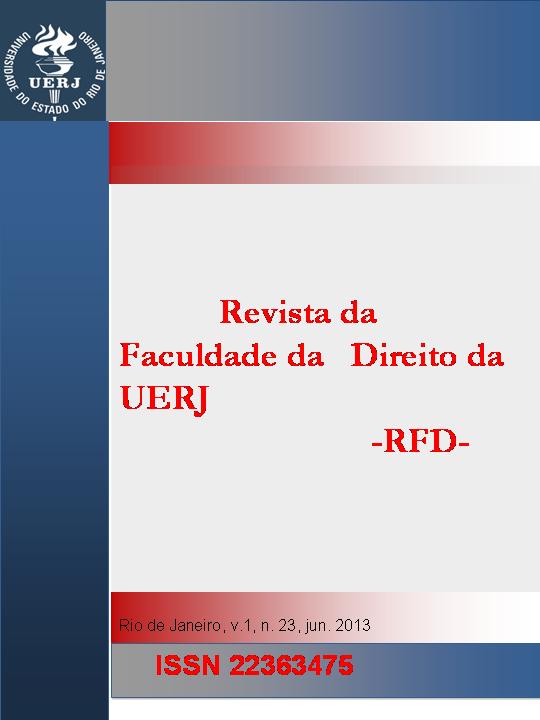TREATY SHOPPING:PLANEJAMENTO TRIBUTÁRIO NO PLANO INTERNACIONAL OU FORMA DE ABUSO DE DIREITO (?)
DOI:
https://doi.org/10.12957/rfd.2013.2204Palavras-chave:
treaty shopping, tax planning, treaty, double taxation.Resumo
O Direito Tributário Internacional surge como ramo jurídico destinado a determinar os efeitos jurídicos das operações internacionais, porquanto é de suma relevância para as corporações que exploram atividade econômica em diversas jurisdições o impacto que a exação de tributos causa em suas receitas, podendo a imposição fiscal até mesmo inviabilizar uma margem de lucro satisfatória, e assim prejudicar a competitividade no mercado. O presente trabalho tem como finalidade mensurar os efeitos que as regras anti-treaty shopping apresentam com relação a esse fenômeno, muito utilizado como forma de planejamento tributário destinado a mitigar a tributação. Busca-se verificar a real efetividade dessas medidas, mas também discutir o fundamento sobre o qual é alegada a sua ilicitude. Defende-se que otreaty shopping é um dos grandes responsáveis para a maior circulação de capitais entre os países, consubstanciando-se verdadeiro meio pelo qual a necessidade de aplicar investimentos se efetiva independentemente da preexistência de acordos internacionais.
Downloads
Publicado
Como Citar
Edição
Seção
Licença
Direitos Autorais
oArtigos publicados na Revista da Faculdade de Direito da UERJ (RFD/UERJ)
Os Direitos autorais dos artigos publicados pertencem à Revista da Faculdade de Direito da UERJ (RFD/UERJ). É permitida a reprodução total ou parcial dos artigos desde que citada a fonte.
oReprodução parcial de outras publicações
Artigos submetidos que contiverem partes de texto extraídas de outras publicações deverão obedecer aos limites especificados para garantir originalidade do trabalho submetido. Plágio em todas as suas formas constitui comportamento antiético e é inaceitável.
Recomenda-se evitar a reprodução de tabelas e ilustrações, extraídas de outras publicações. O artigo que contiver reprodução de uma ou mais tabelas e/ou ilustrações de outras publicações só será encaminhado para análise se vier acompanhado de permissão escrita do detentor do direito autoral do trabalho original para a reprodução especificada na Revista da Faculdade de Direito da UERJ (RFD/UERJ). A permissão deve ser endereçada ao autor do trabalho submetido. Em nenhuma circunstância a Revista da Faculdade de Direito da UERJ (RFD/UERJ) e os autores dos trabalhos publicados nesta revista repassarão direitos assim obtidos.
·Os trabalhos não aceitos para a publicação serão devolvidos aos autores, se solicitado.
A Revista da Faculdade de Direito está licenciada com uma Licença Creative Commons Atribuição 4.0 Internacional.
Este trabalho está licenciado sob uma Licença Creative Commons 4.0, Atribuição-Sem Derivações.
Esta licença permite copiar e redistribuir o material em qualquer suporte ou format para qualquer fim, mesmo que comercial, desde de que citada a autoria original.











